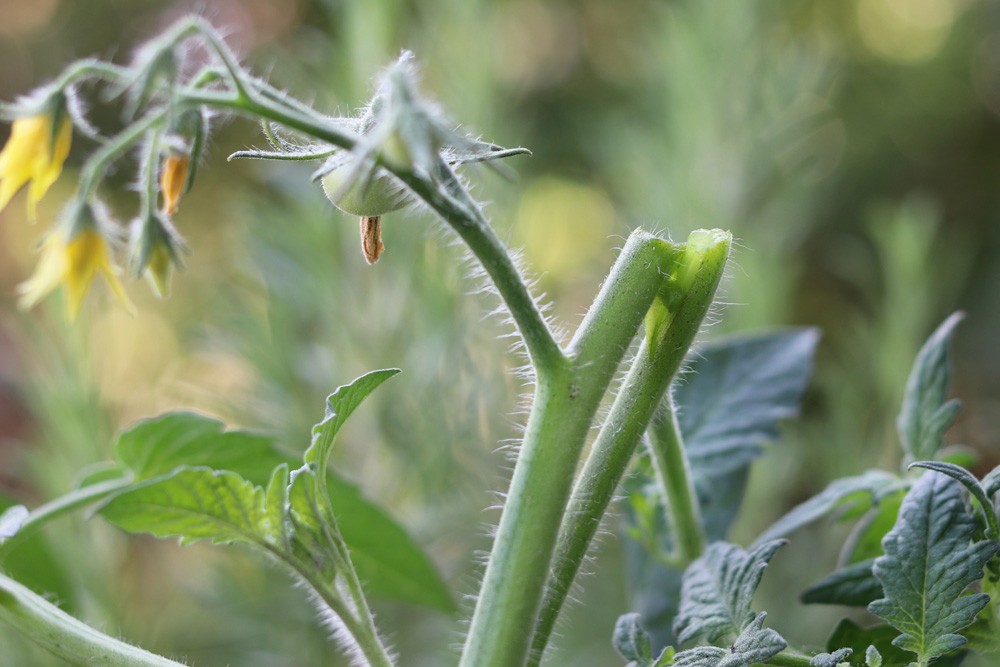You are about to move the tomato plant to another location and suddenly the main shoot or a side shoot accidentally breaks off? When planting out, the strongest shoot bends over in the upper third? You come into the garden full of anticipation and suddenly see that the tomato shoots hang broken to the ground? Don’t panic. Often this problem can be solved with a little patience and the right ideas. What you can do to save your tomato plant, we now explain.
Contents
Knocked off main shoot
Is the tomato plant still salvageable?
If only in the upper part of the plant a piece of the main shoot or a side shoot is broken off, you are lucky. In this case, the tomato usually continues to grow as if nothing had happened. It continues to sprout and corrects the damage to the plant parts all by itself. Even if the strongest shoot is completely bent over, the tomato manages to recover – as long as it happened in the upper third. In the case of damaged main shoots, in most cases the plant resprouts on the sides.
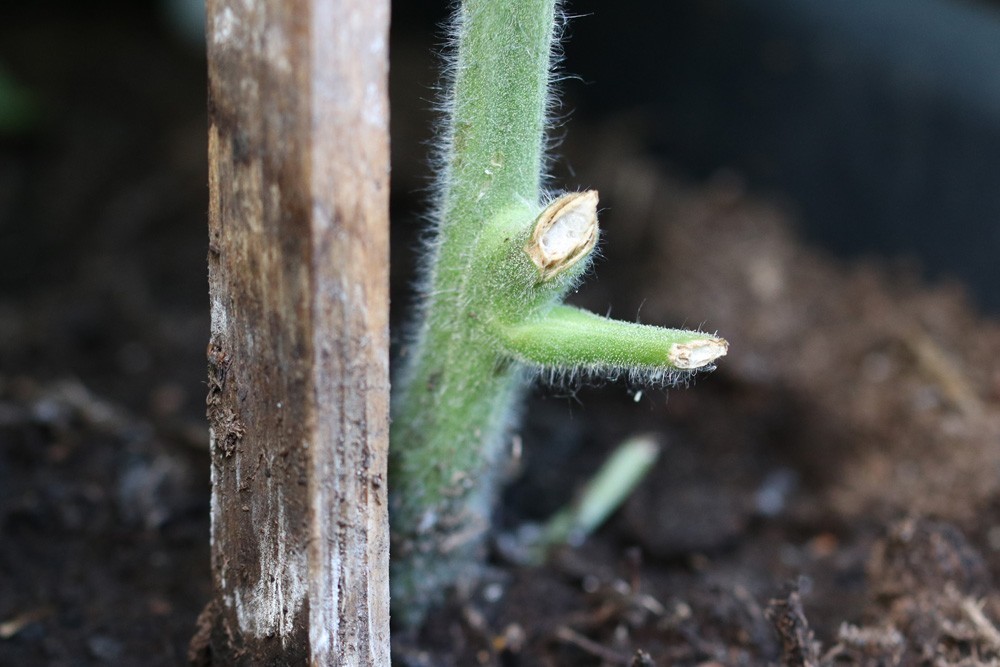
Cut off the break cleanly
It is advantageous to cut off the kinked shoot cleanly directly at the point of breakage, so that a smooth interface is created. This makes it easier for the plant to sprout again and continue growing. In addition, it looks more visually appealing than a shoot that has been broken off uncleanly.
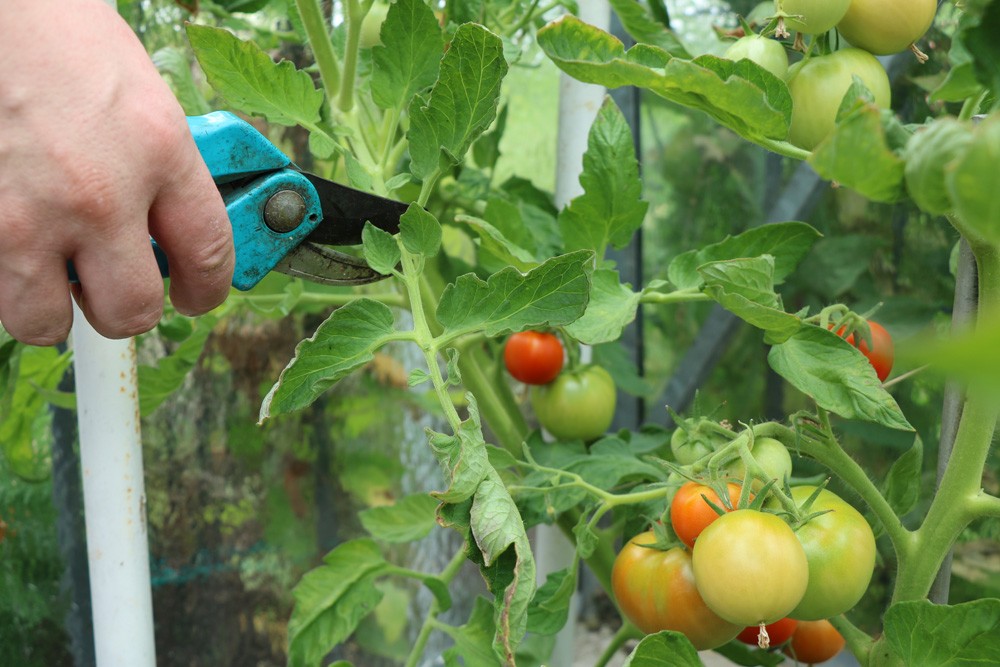
Can the tomato still be budded out?
Pruning is the process of breaking off stunted shoots. Stingy shoots, which are also called ovaries or axillary shoots, are unfruitful side shoots that grow from the leaf axils between the summer shoot and the leaf stalk. A distinction must be made between shoots and water shoots. A water shoot is a summer shoot from old wood of a plant that is woody perennially. It develops, among other things, from dormant buds and has the same morphological structure as a stingy shoot. However, in this case, only the stingy shoots are cut out.
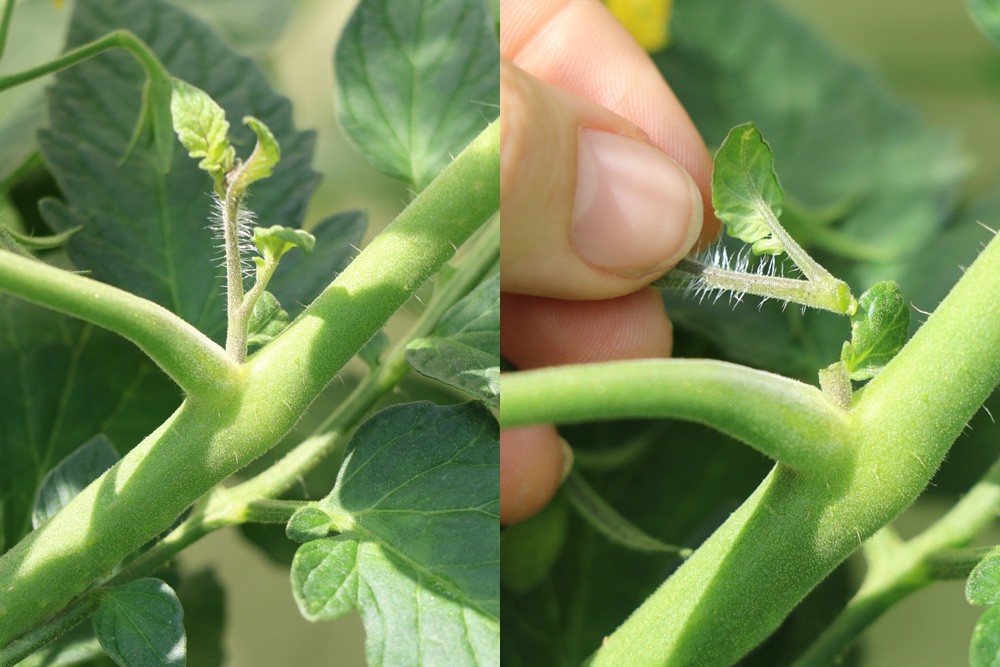
In conventional tomatoes, the shoots are usually broken off as early as possible, so that the plant becomes bushier, and its growth vigor is transferred to the shoots instead of the fruit. However, in tomatoes, if the strongest shoot is broken, in any case, do not cut them too early. It is recommended to first leave all the shoots on the tomato. Pruning should be done only when a new shoot has formed, which is strong enough. You can keep this one while you prune out the excess side shoots.
New shoot
Where and when does the new shoot appear?
At what height the new shoot will grow back varies depending on the plant and the break-off point. It can be directly at the damaged place or in the lower part of the tomato. If the next shoot comes from the bottom, you can pull it to a new top. The period in which a new shoot comes varies. Often it grows quickly from the very bottom, sometimes you need to be a little patient with your tomatoes and take extra good care of them. It is possible that during this period a few tomato leaves dry up. This is not a big deal.
Cutting
Broken off shoot as a cutting
While your tomato plant is forming a new main shoot, you can even still use the shoot that has snapped off. It can be used as a cutting. As a first measure, you can put it briefly in water. As soon as possible, however, the shoot should be in the ground. Flowers and leaves are cut off. Thus, the growth force is available for the shoot alone.
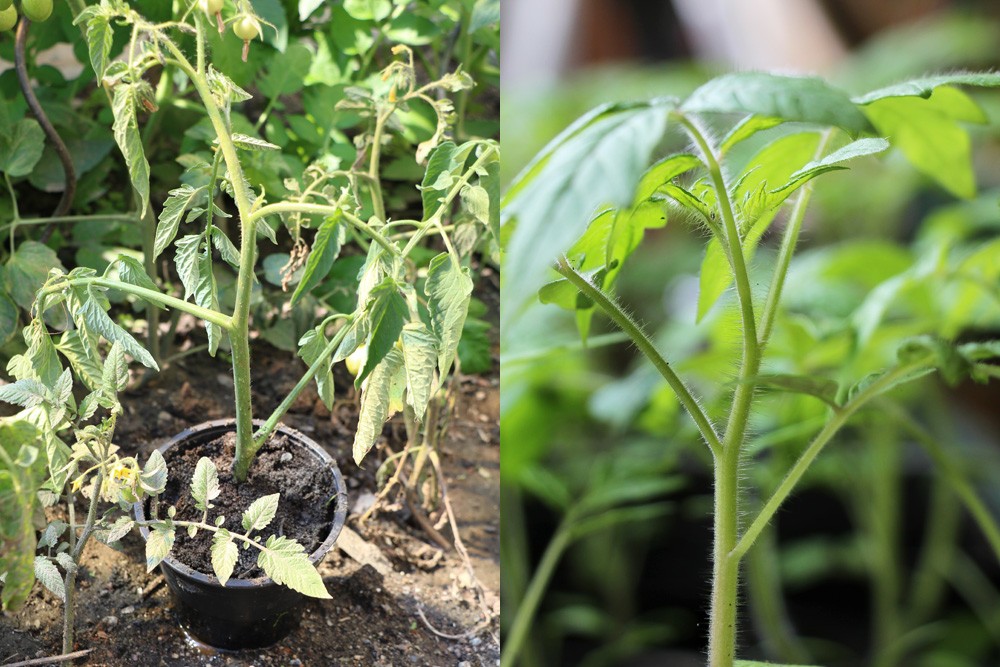
- Dig a small hole in a sun-protected location or right next to the rootstock.
- Push the broken shoot into it.
- Gently press down on the soil.
- Keep it moist.
New roots will form. The shoot can continue to grow again. Then treat it as usual.
Splint
Splint bent main shoot
If a tomato shoot is only slightly broken, the shoot can be splinted. To do this, gently reassemble the kinked area and splint it with a small wooden stick. For this purpose, for example, a wooden barbecue skewer can be used. This is either inserted into the plant so that it has a good grip, or best additionally tied with twine, staples or tape. It is important that you fix everything quite straight and perfectly stable. Otherwise, it may come loose at the slightest movement, and the shoot will bend again. With a stable fixation, everything will grow back together and you can save your tomato plant.

